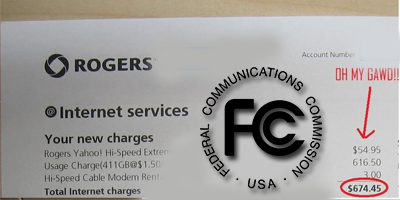February 26th started off as a great day. The US Federal Communications Commission voted in favor of net neutrality. Woot! Right? FCC Chairman Tom Wheeler commented that “no one – whether government or corporate – should control free open access” to the net. Big cable companies (Comcast, for example) cannot charge users more to access a so-called internet “fast lane.” Nor can they relegate users who can’t afford to pay extra to an internet “slow lane.” Open access for all is now the law of the land. All servers go.
BUT. We missed something. Thursdays vote also let the FCC have control over the rates; and it opened up the doors for Federal and State imposed taxes and additional fee’s to be added onto your existing bills. Michael Powell explained it best in his write up: I support Net neutrality, but that is not what the FCC just did
What will this mean for American consumers? In the short term, the Internet will not work differently. We will continue to enjoy the same open Internet experience that we do today. But the price we will pay over time for this radical shift in regulation will be severe. Consumers are likely to see higher bills from new taxes and fees and expenses related to regulatory compliance, along with a host of unintended consequences. They will wait longer to receive faster next-generation services. Internet providers, which spend massive capital to dig up streets, hang wires and connect homes, will see this intense chain of activity subjected to regulatory second-guessing that will slow the dynamic improvements we all desire. And garage startups, which today assert with confidence that the new regulation doesn’t apply to them, will soon find themselves caught in the government’s ever-expanding web.
